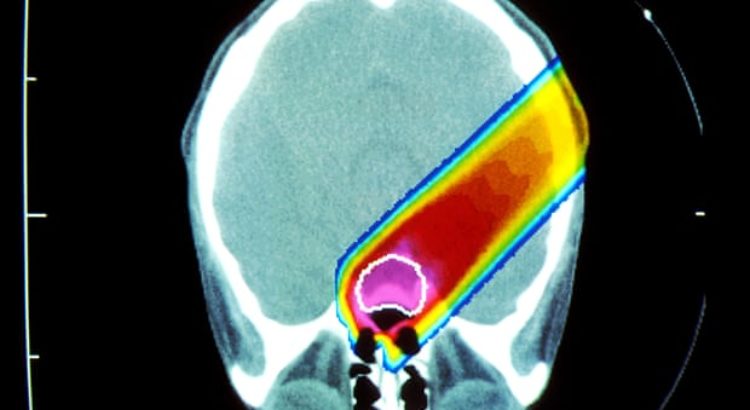By: Sally Weale.
University leaders have said that a no-deal Brexit would constitute “one of the biggest threats” ever faced by the sector, as figures revealed a further decline in EU student enrolment, particularly in postgraduate research.
According to the Russell Group of universities, there was a 9% decrease in the number of EU postgraduate research students enrolling at its institutions this academic year. The fall follows a 9% decline the previous year, and has potential consequences for Britain’s research capacity.
Dr Hollie Chandler, a senior policy analyst at the 24-strong group of leading universities, described the decline as “troubling” and said that were the UK to leave the EU without a deal, it would only increase uncertainty among prospective students from the rest of Europe.
Overall, the number of EU students who enrolled for the 2018-19 academic year at Russell Group universities fell by 3%. Last year, there was a 1% increase in overall EU student numbers, after years of healthy growth in recruitment.
Although enrolment of EU27 citizens at undergraduate level grew by 1% this year, at taught postgraduate level it fell by 5%.
The figures come as an open letter from leaders of 150 universities to MPs said the impact of a no-deal Brexit could lead to “an academic, cultural and scientific setback from which it would take decades to recover”.
“University leaders are united in the view that the UK leaving the EU without a deal is one of the biggest threats our universities have ever faced,” the letter says. “As a sector which contributes over £21bn to UK GDP every year and supports 944,000 jobs, it is critical to the national interest, to the economy, communities and wider society, that the UK’s universities thrive post-Brexit.
“To do so, our government must demonstrate the required ambition, put the right measures and guarantees in place, and, crucially, avoid the UK crashing out of the EU without a deal on 29 March.”
University leaders are particularly anxious to secure a guarantee from ministers that research funding for which the UK may become ineligible after Brexit will be replaced. Funding from the European Research Council (ERC) and Marie Skłodowska-Curie Actions programme (MSCA) will be worth an estimated €1.3bn (£1.2bn) to the UK over the next two years, investing in projects to fight cancer and combat climate change.
Dame Janet Beer, the president of Universities UK, which represents vice-chancellors, said time was running out.
“While we welcome the assurances that the government has already provided about the continuation of Horizon 2020 funding in a no deal scenario, it is critical that similar guarantees are extended, without delay, to cover ERC and MSCA funding,” said Beer, who is vice-chancellor of the University of Liverpool.
“Without cast-iron assurances, world-leading academics and researchers may leave for countries where access to ERC funding is not at risk, and those currently considering relocating to the UK may think again.”
Dame Nancy Rothwell, the vice-chancellor of the University of Manchester, said vital research projects at her university risked being disrupted, including work on proton-beam therapy for cancer patients and Nobel-prize winning work on graphene.
“Researchers who have already spent months or even years preparing funding bids would be left high and dry, including those whose application would be stuck in the middle of the evaluation process,” she said.
Commenting on the EU student enrolment figures, Chandler said that although the Russell Group universities remained popular study destinations with strong global appeal, the figures cannot be ignored.
“It’s fair to assume that uncertainty over Brexit and the UK’s future relationship with Europe could be a significant factor. The drop in postgraduate research courses is especially troubling – these students contribute directly to the UK’s research capacity,” she said.
“If we leave the EU without a deal, the uncertainty felt by prospective European students will only get worse.”
A UK Government spokesperson said: “Science recognises no borders and the UK has a proud record of welcoming the world’s leading scientists and researchers to work and study here. This will not change when we leave the EU.
“Through our modern Industrial Strategy we are investing the highest ever level in research and development in UK history and we are committed to seeking an ambitious future relationship on science and innovation with our EU partners. We are also guaranteeing, in the event of a no deal, money for EU programme-funded research and innovation projects agreed before the end of 2020.”
Shadow Higher and Further Education Minister Gordon Marsden added: “Despite consistent warnings from Labour and the University sector, the Government has continued to ignore the impending damage, especially the drift to no deal, Brexit could cause to our world class Universities and FE Colleges.
“Today’s letter from the sector reiterated everything we have been saying over the past two years about the threats facing students, staff and research but DfE and the Education Secretary has been abysmally negligent in ensuring those concerns and a deal on them should be put at the top of the negotiations table.”
Source of the article: https://www.theguardian.com/education/2019/jan/04/universities-raise-alarm-over-no-deal-brexit-and-eu-student-enrolment






 Users Today : 243
Users Today : 243 Total Users : 35459838
Total Users : 35459838 Views Today : 410
Views Today : 410 Total views : 3418382
Total views : 3418382